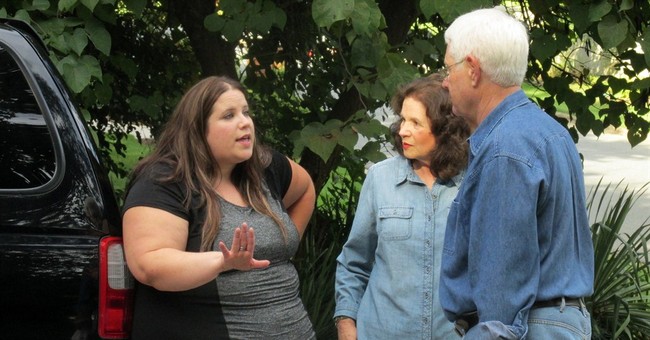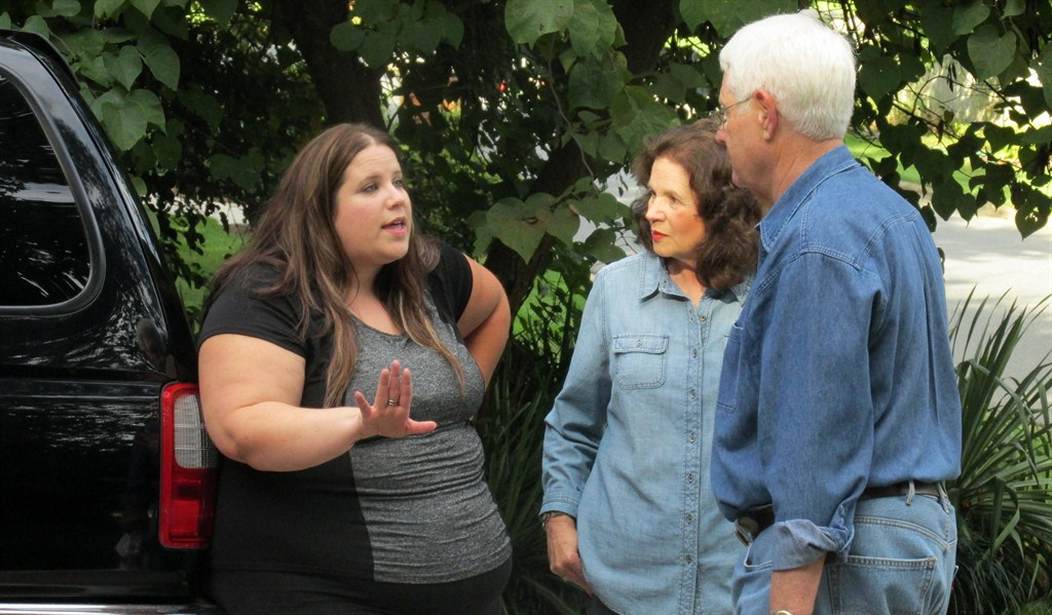
On today’s episode of “You Can’t Make It Up, You Don’t Have To,” a CBS News documentary set to air Sunday promotes the notion that fear of gaining weight — okay, getting fat — is rooted in anti-blackness.
The CBN Originals documentary, “Speaking Frankly/Fat Shaming,” in part features University of California sociology professor Sabrina Springs, who relates the story of a conversation she had with her grandmother, who grew up in the South and later moved to California.
“My grandmother is a Black woman from the South, grew up during Jim Crow, and for her, being able to eat regularly was a triumph. One time she told me that she got a basket of oranges one Christmas and it was one of her happiest memories.
“But when she decided to move to California in 1960, as a lot of Black people were doing at the time […] she encountered for the first time a lot of White women in her integrated community who were on diets, and she was like, ‘What? Why are White women on diets?’
This was something that she puzzled over for years, because no one could really provide her a satisfactory answer.”
Springs said her mother’s puzzlement led her to research the history of “fat-phobia” — the fear of “fatness” due to the stigmatization of weight — in the Western world. So right out of the gate, the assumption that only people in the Western world are concerned with weight-watching?
Springs told CBS that “fatness” wasn’t always undesirable in the Western world; being heavier was, for centuries, considered an attractive characteristic. She cited artists like Peter Paul Rubens, who famously painted heavier females as “the pinnacle of beauty.”
So when did that all change, according to Springs, you ask?
“With the dawn of the slave trade, skin color was the original sorting mechanism to determine who was slave and who was free. But as you might imagine, with slavery progressing through the century, skin color became a less reliable source of sorting various populations.
“Therefore, they decided to re-articulate racial categories, adding new characteristics, and one of the things that the colonists believed was that Black people were inherently more sensuous, that people love sex and they love food, and so the idea was that Black people had more venereal diseases, and that Black people were inherently obese, because they lack self-control.
“And of course, self-control and rationality, after the Enlightenment, were characteristics that were deemed integral to Whiteness.”
So what did “white people” do, as a result?
“What they wanted to do was show that they were both morally upright and racially proper, in the way in which they ate and how they maintained their figures.
And so, they were very clear that to be of the elite race and to be a Christian peoples means that you need to show what they would call temperance in the face of food — or restraint is the way we might think of today — because if you did not show temperance, that was evidence that you were one of the savages, and also, that you were un-Christian.”
Shaking your head? Me, too.
Springs’s argument parallels the ridiculous notion that white people are inherently “racist” because of their “whiteness.”
In a piece titled Billionaire Oprah Whines About ‘Caste System,’ Tells White People: ‘You Still Have Your ‘Whiteness’ I wrote earlier this month, I included a short video, in which Oprah Winfrey claimed:
“There are white people who are not as powerful as the system of white people — the caste system that’s been put in place — but they still, no matter where they are on the rung, or the ladder of success, they still have their whiteness […] (Whites have a) leg up.
You still have your whiteness. That’s what the term ‘white privilege’ is. It means that whiteness still gives you an advantage, no matter. It is the fundamental issue.”
In other words, regardless of what any and all white people believe, say, or how they treat people of all races and cultures, they “have a leg up” in the world, simply because “they still have their whiteness.”
That is exactly what Springs is saying about “white women” who choose to watch their weight. Check it out:
“We cannot deny the fact that fat-phobia is rooted in anti-Blackness. That’s simply an historical reality. Today, when people talk about it, they often claim that they don’t intend to be anti-Black […] they don’t intend all of these negative associations, and yet they exist already, so whenever people start trafficking in fat-phobia, they are inherently picking up on these historical forms of oppression.”
Never mind that according to National Institutes of Health, the following health risks are linked to being overweight, and obesity:
- type 2 diabetes
- high blood pressure
- heart disease
- stroke
- certain types of cancer
- sleep apnea
- osteoarthritis
- fatty liver disease
- kidney disease
- pregnancy problems
Yep, never mind any of the above “minor nuisances,” health-conscious people. The “real” problem is, weight-watching is a “historical form of oppression,” which, of course, is “rooted in anti-blackness.”














Join the conversation as a VIP Member